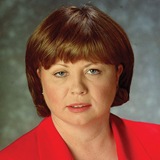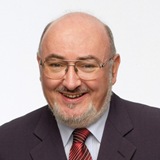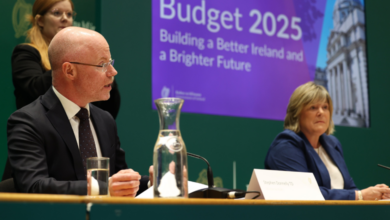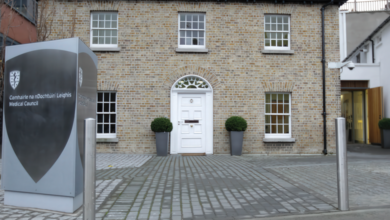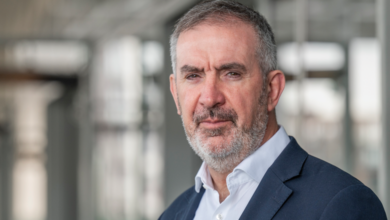Party policy summary
The Programme for Government and the Budget made moderate changes to the health care system. Given the chance, opposition parties would radically overhaul the current system that they claim is “a shambles”.
Health Minister, Mary Harney TD
The main changes proposed for the health system under the Programme for Government include:
• The redeployment of existing staff to newly developed primary care teams across the country, to ensure that the key features of the consultant’s contract are implemented.
• To ensure that public and private patients are treated equally for services such as cancer care and colonoscopies.
• The continuation of co-location.
• The implementation of a ‘Fair Deal’ scheme whereby elderly people will have to undergo a care needs assessment and a financial assessment before entering a nursing home. Depending on their cash, savings or fixed assets, the elderly can then defer the cost of care until after their death by placing a charge against their home.
The core aspects of the health system will remain.
• The public health care system will continue to be managed by the Health Service Executive (HSE). It will remain funded by general taxation.
• The Government will also consider points made in a report due out in April 2010 by the ‘Expert Group on Resource Allocation in the Health Sector.’
• The medical card, (which entitles holders to free hospital care, GP visits, dental services, optical services, aural services, prescription drugs and medical appliance) will not be made available to more of the population than those on welfare payments, low earners and those with certain long-term or severe illnesses. But the Government has conceded to improve income eligibility limits for children with intellectual disabilities.
• The €100 accident and emergency charge for those who attend an accident and emergency department without a referral letter from a family doctor will remain intact.
• Similarly, hospital charges of €75 per day up to a maximum of €750 in any 12 month period for inpatients will remain.
• The Government’s 2010 Budget stipulates that there will be a prescription charge of 50 cent per item under the medical card scheme to cut the State’s medicines bill and the monthly threshold for the Drugs Payment Scheme will go up from €100 to €120.
Sinn Féin Health Spokesman in Daíl, Caoimhín O’Caoláin TD
Sinn Féin wants to end private health care and advocates an all-Ireland Health Service (ie: an Irish NHS).
Health care would be free at point of delivery, on the basis of need and would be funded through general taxation.
Sinn Féin’s ‘Health for All’ document was presented in 2006 and called for primary care to get more priority than hospital care.
They would see that all public bodies are ‘health proofed’. They believe that health is a broader environmental issue in that “poverty and pollution can cause illness.”
All health funding must go to the public system and the private system should eventually be wiped out, according to Sinn Féin. All new consultants should be public only.
Under Sinn Féin, medical cards would be issued to all under 18s.
In their all-Ireland service, a strategic health executive would co-ordinate services at a national level with health partnerships created at a local level. These organisations would include political representatives, service users and staff representatives.
An air ambulance fleet would be introduced and emergency hospital services would be no more than a one hour drive away.
Fine Gael Health Spokesman, Dr James Reilly TD
If they get into power, Fine Gael would overhaul the health service by implementing their version of a Dutch system of universal health insurance (UHI).
Fine Gael criticise the Government for “throwing taxpayer’s money” at the health care system over the years without implementing any “major reforms”. Health spokesman Dr James Reilly claims, “over the last 10 years the health service has become a shambles.”
Called ‘Fair Care’, the Fine Geal plan would see everyone buying a standard healthcare package from one of a number of competing insurance companies. This package would cover services and treatments such as: GP and hospital care, medicines, maternity care and ambulances.
‘Fair Care’ would be a three phase programme and Fine Gael note, “reforming the Irish health system will not be easy.”
The first phase would see “a comprehensive network” of primary care centres. These centres would cut down the number of patients in hospital.
Fine Gael say that resources, arising from the sale of psychiatric institutions and lands, would be ring-fenced to mental health. Psychiatric illness must be treated like any other illness, and resourced accordingly.
Furthermore, the Minister of Health would be “directly responsible” for hitting key targets with a special delivery unit established to assist the Minister. They say the current Health Minister can “wipe their hands” off the problems too easily.
Under phase two of ‘Fair Care’, they would introduce a “money-follows-the-patient” budgeting system whereby health providers would be paid for how many patients they treat. Patients will be a source of income rather than a cost.
Once phase two is introduced, the National Treatment Purchase Fund (NTPF) would be closed, saving around €100 million a year, according to Fine Gael.
The costs of ‘Fair Care’ would largely be borne by the private sector.
Phase three would see the introduction of UHI. This would only be introduced once waiting lists had been significantly reduced.
The Dutch system of UHI, which Fine Gael wants to implement, has a strict community rating and an obligation to cover which means that insurance companies could not discriminate against individuals on the basis of age, sex or medical history. The insurance model would also address mental health.
Fine Gael envisages a system whereby everyone will receive a package of free GP care, paid for by rebalancing the tax system. They would like to see the HSE and private health care systems become one, run by the private insurance companies.
Labour Health Spokeswoman, Jan O’Sullivan TD
L
abour has a strong focus on women and health. They call for breast checks to be on target and available to all women. Cervical cancer screening should be available to all women over 25 years and well-women clinics should be established for advice and easy access.
Like Sinn Fein, Labour believes that there is a link between poverty and health. They say medical cards should be available for 40 per cent of the population.
Community care and investment in mental health are called for. They also want “support in employment, childcare, family and health to manage stress.”
All the parties agree on the importance of primary care centres. Labour want easy access at local primary care centres because “GP hours are not adequate.”
Socialist Party Leader, Joe Higgins MEP
The Socialist Party wants a Health Service that brings the staff at all levels to the very heart of running the organisation through the establishment of democratic structures.
Socialist Party MEP Joe Higgins says: “There is nobody who knows more about what needs to be done to improve and upgrade services, wipe out waste and so on, than the worker at the coalface.”
He hopes that this structure would wipe out the “heavily bureaucratised” HSE and replace it.
The Socialists also believe that the patient, who has experience of receiving the services should also be formally involved in the process of developing policy and the best practices.
Higgins wants to see “a one tier public Health Service for all our people” that would be an “alternative to the profit seeking privatisation philosophy of Fianna Fail and Fine Gael.”
In order to finance health the banks need to be nationalised “immediately” but under democratic control.

